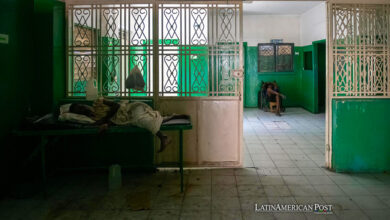Massive dataset reveals which governments have best responded to COVID-19 pandemic
Researchers study the ability of democracies to react to global crisis.

Study reveals which governments have best responded to the COVID-19 pandemic. / Photo: Freepik
EurekAlert | BINGHAMTON UNIVERSITY
Listen to this article
Leer en español: Una investigación revela qué gobiernos han respondido mejor a la pandemia
Are our political institutions up for the task of managing the COVID-19 pandemic and any possible future similar threats? A research team led by faculty at Binghamton University, State University of New York has compiled an extensive dataset tracking public health government responses to COVID-19 at national and subnational levels of government throughout the world.
The coronavirus pandemic provides a unique opportunity to evaluate the response of different types of government to a global crisis, according to Binghamton University Professor of Political Science Olga Shvetsova. Other types of catastrophic events, such as war and national disasters, affect select countries or regions and do not allow one to draw global comparisons.
"We are motivated by events to figure out what happened and is happening, and develop new understandings of how government works and politicians function and respond to crises," Shvetsova said of the collaborative lab.
As the pandemic unfolded over the spring and summer, Shvetsova's lab compiled a massive database comparing pandemic-related governmental policies in 64 countries on both the national and subnational levels, as part of the COVID-19 Protective Policy Index (PPI) project. The data runs from January through May 2020, and is publically available for researchers' use, while data collection is underway for the period between May and November.
The lab began collecting data on March 12. Policies tracked by the database fall into multiple categories, including: international and domestic border closures, school closures, social gathering and social distance restrictions, lockdowns and curfews, medical isolation and quarantine, the restriction of nonessential businesses and services, states of emergency, and mandates requiring personal protective equipment.
In addition to political science professors and doctoral students with the department, the project has drawn colleagues from around the country and even around the world, including Canada, the United Kingdom and Russia. Undergraduate students joined the effort, too, as research assistants. The lab is collaborative, with members pitching in on data collection, brainstorming, writing and responding to requests during the peer review process.
Also read:Time to rethink predicting pandemic infection rates?
"Pandemic policy-making is a truly global experiment in how different types of government work. It is a check on how resilient we are, and what the constitutional sources of that resilience are," Shvetsova said of the ongoing pandemic research.
The data has already sparked two papers, with more in the pipeline. "Institutional Origins of Protective COVID-19 Public Health Policy Responses" will appear in an upcoming issue of the Journal of Political Institutions and Political Economy, and takes a global look at the advent of pandemic-related policies. Published in September by Canadian Public Policy/Analyse de politiques, "COVID-19 Policy Response and the Rise of the Sub-National Governments" compares the advent of policies in Canada and the United States, on both the federal and state/province levels.
The lab will continue to collect data on the pandemic for as long as it remains feasible. The team hopes to make another round of data, from May through July, available by the end of the year. Additional variables as well as more countries will also be added to the database.
Currently, the lab is writing and publishing work on incentives and disincentives for pandemic response in democracies, looking at the impact of governmental structure, political parties and the way governments are held accountable for the health of their populations. Other projects will likely emerge as data continues to accumulate.
Long-term, the coronavirus may offer a metric with which to judge the efficacy of different styles of government in responding to crisis. That would require reliable statistics that other disciplines are gathering: of the number of cases and deaths, along with strong mathematical epidemiological models of factors determining spread and mortality.
"These are big questions. It's unprecedented to be in a moment of time when we can contemplate hypotheses and run regressions and actually glimpse the answers to those big questions," Shvetsova said.




